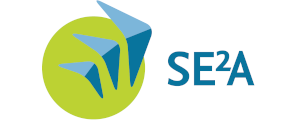
As part of the SE2A Cluster of Excellence, the ScenAIR2050 project provides a multi-criteria decision support for the evaluation of technologies developed within the Cluster of Excellence and its research on pathways towards an energy efficient air transport system in 2050. Through the construction of e.g. exploratory foresight scenarios, the project team addresses the interaction of several sub-components of aviation in relation to societal changes in the medium to long term future.
The methodology of the project is based on a combination of futures studies and design research. It involves the construction of scenarios, a tool used in futures studies to provide alternative concepts of future developments. Scenarios explore possible, probable, preferred and un-preferred futures. The design research in the ScenAIR2050 project comes from the fact that the scenarios are user-centred. They incorporate changes in lifestyles and behaviour, mainly in Europe. The contrasting scenarios encourage a departure from familiar paths and provide innovative impulses to steer a system towards change. They also serve as a platform for discussion among cluster partners for further research and development.
Stefanie Ollenburg
s.ollenburg(at)fu-berlin.de
Marius Land